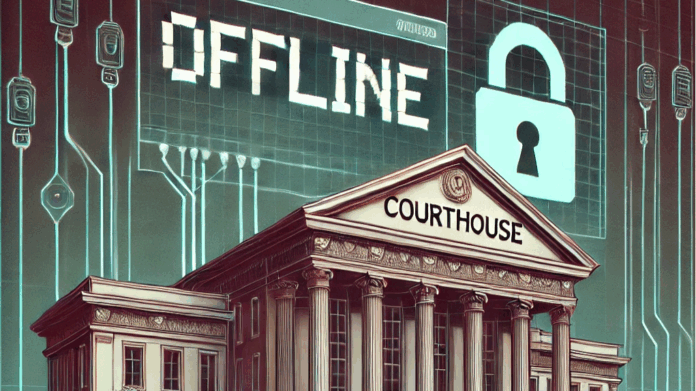
What Matters Now
- The recent Amazon Web Services (AWS) outage that crippled California’s eFileCA and Odyssey court-filing systems has raised urgent legal questions about how courts should treat missed statutory deadlines caused by system failures.
- Under California law, many deadlines are statutory, meaning missing a filing by even one minute can result in dismissal, default, or waiver of rights. As one appellate attorney told USA Herald, “You can lose a case not because you were wrong, but because the cloud went down.”
- While AWS claims that it has since restored service, the fallout from the outage continues to ripple through law firms, self-represented litigants, and court clerks — many of whom still report outages, e-filing delays and incomplete transmission receipts.
By Samuel A. Lopez | USA Herald | October 20, 2025
LOS ANGELES, CA – California’s civil procedure operates on a foundation of strict statutory deadlines. These are not mere guidelines — they are legally binding time bars. A civil complaint filed one day late can trigger dismissal with prejudice. A notice of appeal filed after the statutory period is jurisdictionally void. Even discovery motions, anti-SLAPP responses, and motions for new trial are subject to precise, unforgiving timelines.
The AWS outage that struck on October 2o, 2025, disabled the state’s largest electronic filing platform — eFileCA — which handles the majority of filings through Tyler Technologies’ Odyssey File & Serve system. For hours, attorneys across the state were locked out of the filing interface.
“Imagine you’ve spent weeks preparing a dispositive motion due at midnight,” said one Los Angeles litigator. “Then the portal crashes at 11:57 p.m. You’ve technically missed your filing — and you’ve technically lost your case.”
This scenario is not hypothetical. California courts have repeatedly held that filing deadlines are statutory in many contexts, meaning the court lacks power to accept late filings, even if the delay is caused by external factors. When a digital system fails, litigants face a paradox: the law demands compliance, but the tools required to comply have broken down.


